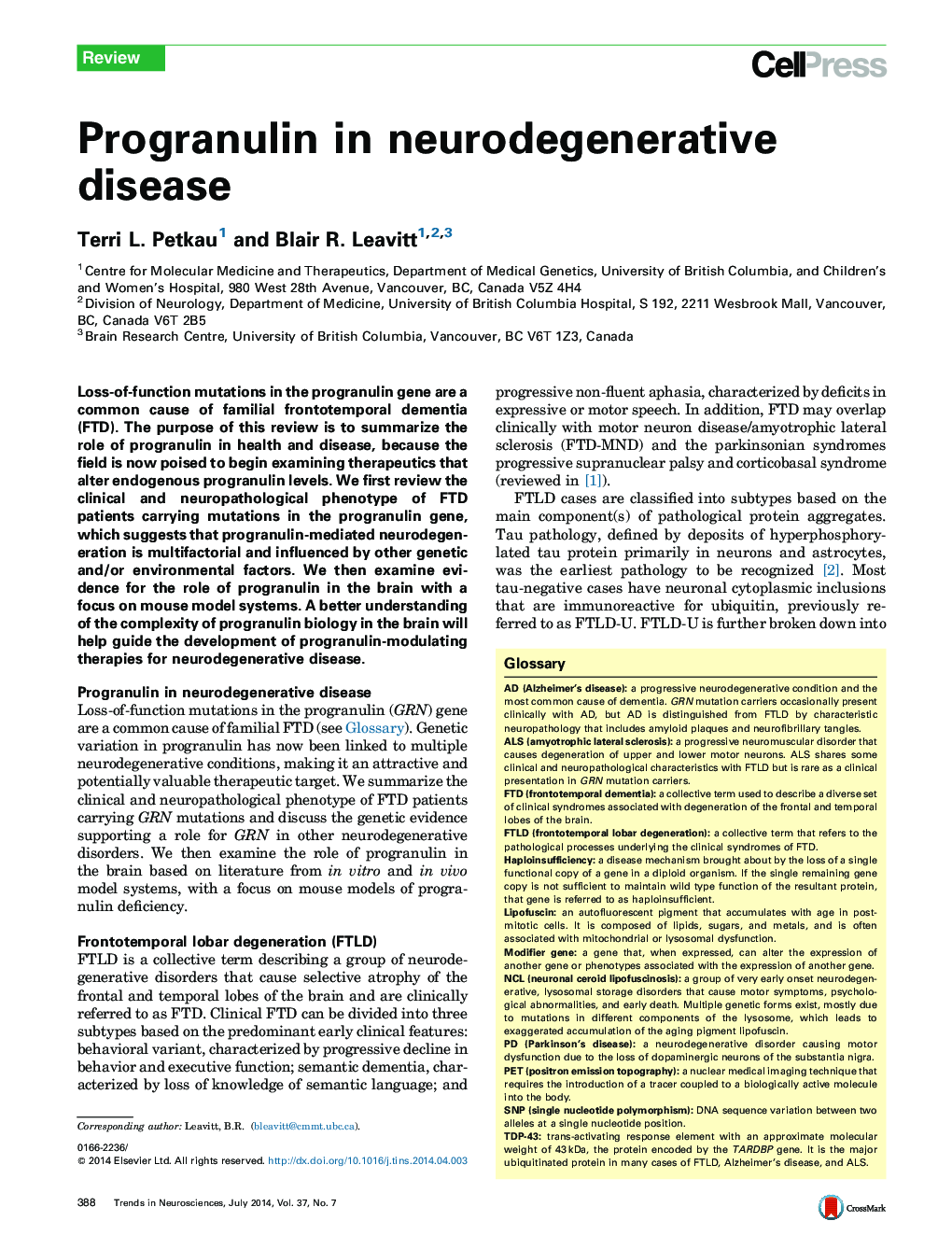| Article ID | Journal | Published Year | Pages | File Type |
|---|---|---|---|---|
| 4354266 | Trends in Neurosciences | 2014 | 11 Pages |
•Frontotemporal dementia (FTD) caused by progranulin mutations is clinically heterogeneous.•Genetic variation in progranulin is linked to multiple neurodegenerative disorders.•Progranulin is a pleiotropic protein and plays diverse roles in the brain.•Recent evidence implicates a role for progranulin in lysosome function.
Loss-of-function mutations in the progranulin gene are a common cause of familial frontotemporal dementia (FTD). The purpose of this review is to summarize the role of progranulin in health and disease, because the field is now poised to begin examining therapeutics that alter endogenous progranulin levels. We first review the clinical and neuropathological phenotype of FTD patients carrying mutations in the progranulin gene, which suggests that progranulin-mediated neurodegeneration is multifactorial and influenced by other genetic and/or environmental factors. We then examine evidence for the role of progranulin in the brain with a focus on mouse model systems. A better understanding of the complexity of progranulin biology in the brain will help guide the development of progranulin-modulating therapies for neurodegenerative disease.
